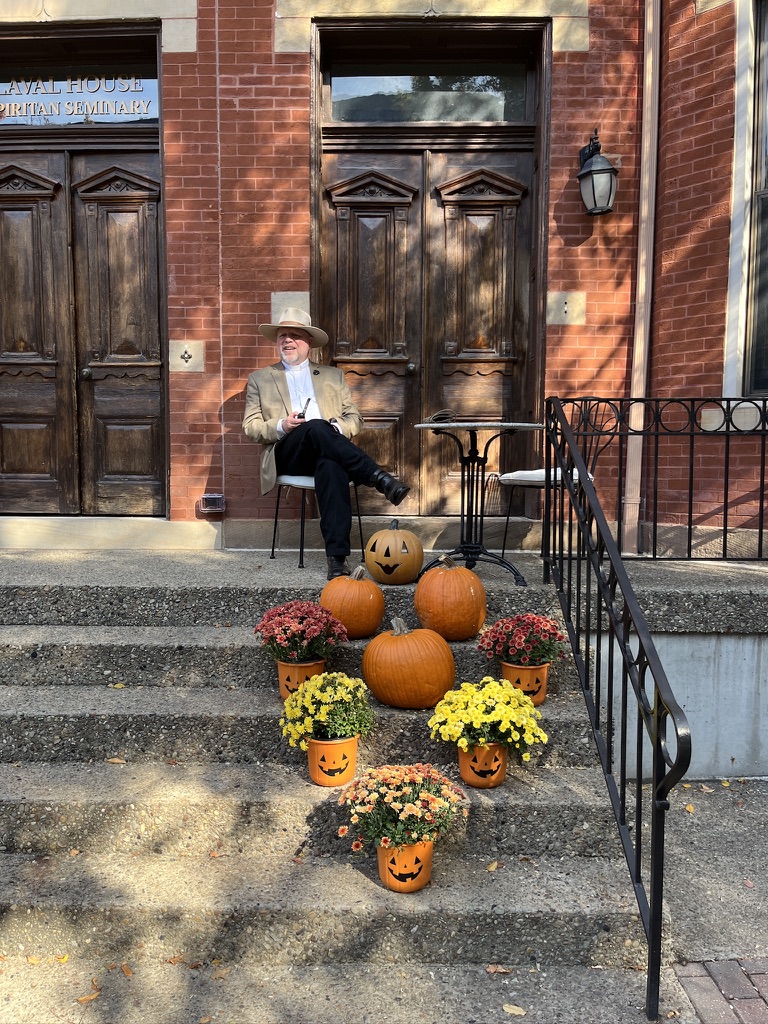Duquesne commits to every student’s success
Fast facts for
Duquesne University

Duquesne University overlooks the Monongahela River, one of the three rivers that intersect in Pittsburgh, Pennsylvania. It has access to the cultural center and downtown businesses in Pittsburgh yet is set on 48 acres of secluded, park-like campus. The university is affiliated with the Catholic Spiritans. Students who identify as Catholic make up 45% of the population; 27% are students of color and 25% are Pell eligible.
My friend and colleague Dianne Keilholtz and I met with Anthony Cappa, senior director of recruitment and admissions, on an unseasonably warm day in October. What stood out to me about Duquesne is the level of support available to all who want it at this Catholic institution.
Support from before you arrive on campus
Duquesne begins working with students months before they arrive on campus. For those who need extra support, they have a summer bridge program. A success network of advisers guides students to use all the academic, career, and wellbeing resources available at Duquesne. A whole brochure, “Discover and Shape Your Path to Success,” explains the support here.
You start with a success coach in the spring of your senior year of high school, meeting virtually to learn more about your interests. First-years can be paired with mentors who are university employees that can help you with whatever arises once you’re on campus.
The Bridges Core Curriculum

The Bridges Curriculum is the core of liberal arts courses every student must take. (“Bridges” alludes to Pittsburgh’s many literal river crossings.) It encourages studying a wide range of subjects while overlapping with every major. You choose courses that interest you within a framework that emphasizes intellectual and moral development. One theology course is required, but any religion, or many, can be studied. The curriculum took input from employers in order to keep career-readiness in mind. The Spiritan philosophy influences the curriculum by developing skills for ethical reasoning and encouraging local and global service.
Freshmen and sophomores are required to live on campus for two years. Cars can be brought to campus. Apartments are available for upperclassmen.
Applying to Duquesne
According to Duquesne’s Common Data Set, GPA, rigor, and (if supplied) test scores are the most important factors in admission; character and extracurricular activities are important. When you apply, select a school, but you can be undecided within that school.
The School of Business is adding a financial planning track to the finance major for fall 2025. Business is one of the larger schools at Duquesne.
The School of Education has majors in early, middle, secondary, and special education and a fast-track to a master’s degree.
The School of Health Sciences has three majors: health administration, public health, and a BSHS in health sciences.
The College of Liberal Arts has more than 30 majors, including English, history, psychology, and theology.
The School of Science and Engineering offers, among other majors, forensic science and law, biotechnology, and math and computer science under science; environmental and energy engineering, general engineering, and mechanical engineering under engineering. Duquesne has a scholarship for women in STEM, and they actually have more women in this college than men.
The School of Music includes majors in music education, jazz, and music ministry, among others.
The School of Nursing is a four-year BSN program with direct entry for freshmen. It’s one of the most popular programs at Duquesne. With the many hospitals in Pittsburgh, there’s no problem getting clinical hours. And Mercy hospital is right next door.
In addition to these undergraduate schools, Duquesne has schools of pharmacy, law, and osteopathic medicine. Duquesne’s law school recently received a $50 million dollar gift from alumnus Thomas R. Kline, funding scholarships for students, improving the building, and giving his name to the school, now the Thomas R. Kline School of Law. Duquesne recently opened the College of Osteopathic Medicine with the purpose of training primary care doctors to work in rural areas.
The pharmacy program offers a first-year entry and six years to the doctorate of pharmacy (Pharm.D.)
Commitment to students and community

This container garden provides fresh produce for neighbors in food deserts. Service to others is a key ingredient of life at Duquesne.